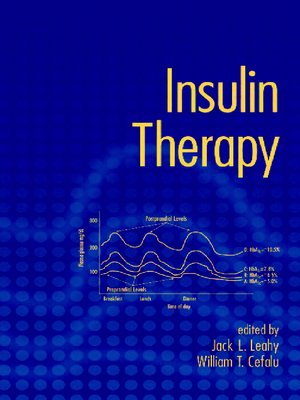
Sign up to save your library
With an OverDrive account, you can save your favorite libraries for at-a-glance information about availability. Find out more about OverDrive accounts.
Find this title in Libby, the library reading app by OverDrive.



Search for a digital library with this title
Title found at these libraries:
| Library Name | Distance |
|---|---|
| Loading... |
Provides "how-to" guidelines for inpatient and outpatient insulin therapy in children and adults and during pregnancy and in hyperglycemic emergencies.
Evaluating strategies for the management of types 1 and 2 diabetes, this reference explores the pharmacokinetics of insulin and insulin programs as well as the latest glucose self-monitoring equipment and assessment strategies to achieve optimal glycemic control and reduce the occurrence of complications including retinopathy, neuropathy, nephropathy, and cardiovascular disease.
Describes current treatment procedures and goals of therapy for patients with diabetes mellitus as summarized by the American Diabetes Association.
Insulin Therapy stresses
- the need for analogs that mimic normal patterns of physiological insulin delivery
- the design of individualized nutritional goals and meal plans to improve metabolic control
- new approaches for insulin replacement in children and adolescents
- the importance of blood glucose management for hospitalized patients
- means to avoid hypoglycemia
- the etiology and pathogenesis of types 1 and 2 diabetes
- novel methods to achieve and maintain normoglycemia throughout pregnancy
- treatment of hyperglycemic emergencies such as ketoacidosis and nonketotic hyperosmolar syndrome
- insulin pump therapy in children and adults







